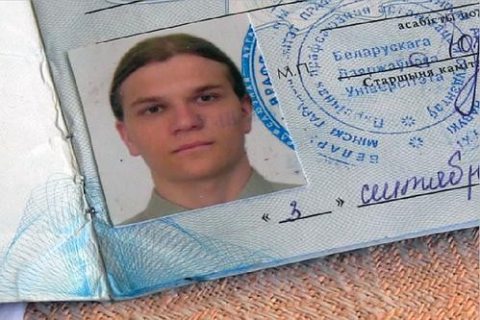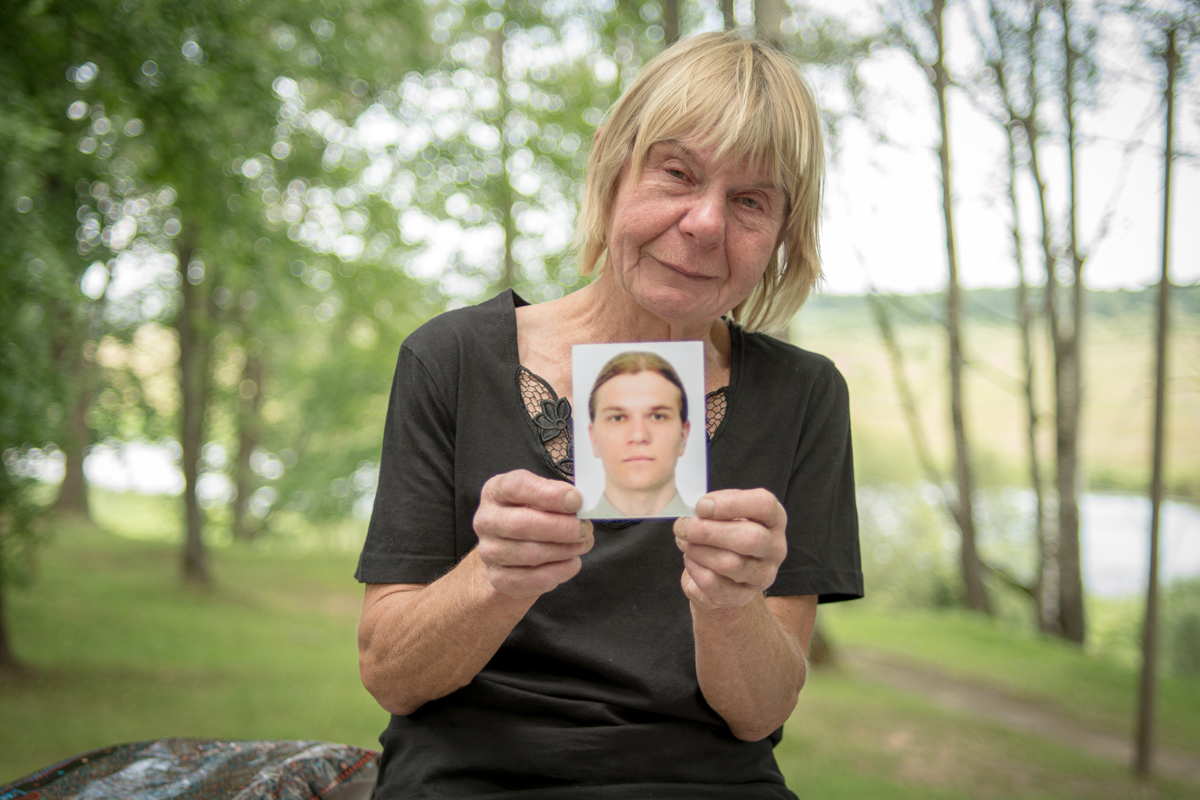The UN HRC found a violation of the rights of the mother of executed Pavel Selyun
The UN Human Rights Committee ruled on the appeal of Tamara Selyun (Tamara Sialiun), the mother of the death row inmate Pavel Selyun (Pavel Sialiun). The woman asked to recognize the violation of her right not to be ill-treated by the Department of Corrections. After the execution of her son, the agency sent her a parcel containing her son's prison clothes labeled “IMN” (short for exceptional punishment), which he wore during his stay on death row. At the same time, the department did not report the time and place of burial of the guy. Having received such a parcel, the woman experienced such an intense shock that she cut her clothes with an ax and burned them. Tamara Selyun tried to achieve justice through the Belarusian courts and national authorities, but to no avail. Now the UN Committee has recognized the violation of the rights of the mother of Pavel Selyun, who was executed. The HR Committee ordered the Belarusian authorities to provide the woman with compensation for the violations committed, to publish information about the burial place of her son, and to give her the remains of her son. Human Rights Defenders Against the Death Penalty campaign recalls the case of Pavel Selyun, tells what rights of the mother of the executed Belarusian were violated, and campaign coordinator Andrei Paluda explains why this decision is important for the Belarusian society
“Moved in accordance with the verdict” less than a year after the court's decision The case of Pavel Selyun

- Pavel Selyun's documents photo
On June 12, 2013, the Hrodna Regional Court found Pavel Sialiun, 23, a former student of the Belarusian State University’s History Department, guilty under four articles of the Criminal Code, including double murder, theft, and desecration of corpses. He had no criminal record. He said his actions were an act of jealousy. The dead were his wife and her lover. For multiple offenses, the trial court sentenced Pavel Sialiun to capital punishment. Judge Anatol Zayats considered the case.
Pavel Selyun, was sentenced to death on a confession extracted by torture. The death sentence was carried out on April 17, 2014, less than a year later. The next day, when Pavel’s lawyer attempted to visit him in prison, she was informed that he had been “moved in accordance with the verdict”. His mother, however, was not informed even of that.
On May 16, 2014, after a month since the execution, Tamara Selyun finally received a letter from the Hrodna Regional Court informing her that her son’s court sentence had been carried out on 18 April 2014. The letter also stated that in accordance with article 175 of the Criminal Executive Code, the body of her son could not be returned and the location of his burial site would not be communicated to her. In addition, the Department of Execution of Punishments sent the mother of the executed guy a parcel containing her son's prison clothes with the inscription "IMN" (exceptional punishment) and her son's shoes, which he wore during his stay on death row. The woman had seen her son in those clothes several times when she visited him before his execution. Seeing the clothes from the death row caused the woman such a strong psychological shock that she cut them with an ax into pieces and burned them near her house.
A parcel from the Penitentiary Department with the prison clothes of the executed son is cruel and inhuman treatment. Appeal to the Human Rights Committee
The woman appealed to the Hrodna Regional Court with a request to inform her of the time of death and the place of burial of her son, but was refused. Tamara Selyun tried to appeal this refusal in various judicial instances up to the Supreme Court, but to no avail. She also asked to find unlawful and constituting cruel and inhuman treatment the actions of the State Penitentiary Department, which sent her the death row clothes of her son. However, all of her requests were denied or ignored. Having exhausted all domestic remedies, Tamara Selyun, with the help of the coordinator of the Human Rights Defenders against the Death Penalty campaign Andrei Paluda appealed to the UN Human Rights Committee.
Pavel Selyun's mother claims that the refusal to provide information about her son’s time of death and the location of his burial site, as well as receiving her son’s prison clothes by mail has inflicted and continues to inflict on her mental suffering and stress. She considers that the secrecy around her son’s execution and the refusal to hand over his body constitutes an intimidation and punishment of his family because it purposefully puts them into a state of uncertainty, suffering and mental stress, and, therefore, violates her rights under article 7 of the Covenant.
Tamara Selyun also claims that lack of any effective remedies allowing her to request from domestic courts information about the time of her son’s execution and the location of his burial site constitutes a violation of article 14(1) of the Covenant. The author considers that she was denied a fair and public hearing by a competent, independent and impartial tribunal in the determination of her rights under article 7 of the Covenant.
Belarusian authorities response
Predictably, the Belarusian authorities saw no violation of Tamara Selyun's rights. They justified their decision by the fact that the courts refused because the case had no jurisdiction or because the woman could not substantiate her complaint.
By note verbale of December 27, 2016, Belarusian government noted that the order of conducting an execution is regulated by article 175 of the Criminal Executive Code and is under exclusive competency of the body entrusted with carrying out death penalty. In accordance with this article, the prison administration responsible for the execution must notify the sentencing court when the verdict is carried out, and the latter must notify a close relative. The body cannot be handed over to relatives nor can they be informed about the location of its burial site. The authorities noted that the Hrodna Regional Court informed Tamara Selyun about her son’s execution on 8 May 2014. They claim that in accordance with article 18 of the Criminal Executive Code, courts only oversee the execution of verdicts and do not receive information about locations of burial sites. It also noted that the Supreme Court does not consider the prohibition concerning release of a body for burial or release of information about execution time and location of burial site to be a violation within the meaning of article 7 of the Covenant.
Conclusions of the Committee
Seven years later, the UN Human Rights Committee issued an opinion and acknowledged that the Belarusian authorities and the court had indeed violated the rights of the mother of Pavel Selyun, who had been sentenced to death.
As a result, the Human Rights Committee noted in its Views that the rights of Tamara Selyun under Articles 7 and 14 (1) of the Covenant had indeed been violated in the present case.
In accordance with Article 2(3)(a) of the Covenant, Belarus is obliged to provide Tamara Selyun with an effective remedy. Also, the Belarusian authorities are now obliged to provide adequate compensation to the author for the violations suffered, to release information about the burial site of her son, and to hand over her son’s remains. Belarus is also under an obligation to take all steps necessary to prevent similar violations from occurring in the future, in particular by amending the Criminal Executive Code with a view to bringing it into line with the country's obligations under article 7 of the Covenant.
“The system of the death penalty is aimed specifically at punishment and mockery”
Tamara Selyun was represented by Andrei Poluda, coordinator of the Human Rights Defenders Against the Death Penalty campaign. He says:
 "The path that we went through together with the author of the appeal Tamara Nikolaevna Selyun – from the first complaint at the domestic level to the decision of the UN Human Rights Committee – took a long seven years, but we never doubt for a moment that this path was worth it.
"The path that we went through together with the author of the appeal Tamara Nikolaevna Selyun – from the first complaint at the domestic level to the decision of the UN Human Rights Committee – took a long seven years, but we never doubt for a moment that this path was worth it.
This decision is precedent-setting, as it concerned the consequences of the execution of death sentences. The decision confirms that the penitentiary system in a particular segment related to the death penalty greatly affects the relatives of convicts, and the state does nothing to change it. And what's more, it seems that it contributes to this by increasing the emotional suffering of the family. Take only how they refuse to give back to the family the personal belongings of the executed, their photos, diaries, and books, but send the state-issued prison clothes, shoes, and hats.
In its decision finding violations of Articles 7 and 14 (1) of the Covenant, the Committee confirmed that the system of capital punishment is aimed precisely at punishment and mockery; it is inhuman and affects a very wide range of people, not only relatives of those sentenced and executed. It affects our whole society, each and every one of us.”


















